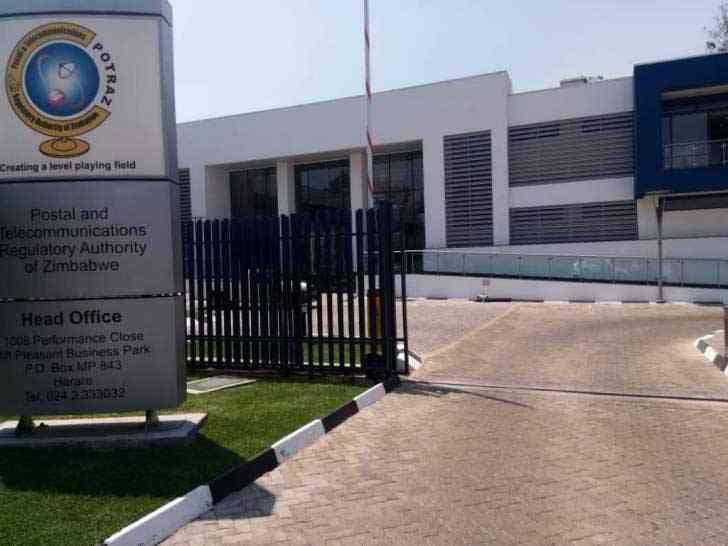
FOR the past three weeks, I have been proposing that the government through the Ministry of Information Communication Technology, Postal and Courier Services, should urgently ensure that the country develops and implements the Zimbabwe Artificial Intelligence (AI) Governance Regulatory Framework.
The proposed Artificial Intelligence Governance Regulatory Framework (AIGRF) can be implemented by yet another entity I proposed, named the Zimbabwe Artificial Intelligence Regulatory Authority (ZAIRA).
This week's article gives insights to the readers and Zimbabweans in general about why I am so passionate about this.
In 2024, there was a document titled Global Index [on] on Responsible AI, which is available under Creative Commons Attribution 4.0 International (CC BY 4.0):https://creativecommons.org/licenses/by/4.0/deed.en and can also be accessed on Global Index on Responsible AI 2024 Corrected Edition.
This document on Responsible AI was released in June 2024. It shows that Zimbabwe lacks comprehensive governance frameworks to protect and promote human rights within the AI environment.
What does this mean? This means that as a country we do not have any governance framework that we can turn to for protection against human rights violations that may come as a result of exposure to AI technologies.
This should prompt the government to urgently ensure that an AI governance framework that protects and promotes human rights in the development and deployment of AI systems is in place.
What is this document?
- Harvest hay to prevent veldfires: Ema
- Public relations: How artificial intelligence is changing the face of PR
- Queen Lozikeyi singer preaches peace
- Public relations: How artificial intelligence is changing the face of PR
Keep Reading
“The Global Index on Responsible AI (GIRAI) is the first tool to set globally relevant benchmarks for responsible AI and assess them in countries around the world.
“This study constitutes the largest global data collection on responsible AI to date. In its first edition, the Global Index on Responsible AI covers 138 countries and jurisdictions, including 41 countries from Africa” (Global Index 2024; page 09) “The Global Index on Responsible AI measures 19 thematic areas of responsible AI, which are clustered into three dimensions: Human Rights and AI, Responsible AI Governance and Responsible AI Capacities.
Each thematic area assesses the performance of three different pillars of the responsible AI ecosystem: Government frameworks, government actions, and non-state actors’ initiatives” (Global Index 2024; page 10).
What did the Global Index report say about Zimbabwe?
The Index, measured by the Global Centre on AI Governance, shows Zimbabwe’s current governance frameworks fail to uphold responsible AI principles across all phases of the AI life cycle and value chain.
Responsible AI as defined in the Global Index on Responsible AI is “the design, development, and governance of AI in a way that respects and protects all human rights and upholds the principles of AI ethics through every stage of the AI lifecycle and value chain.”
Zimbabwe scored 3,69 out of 100 in the Global Index on Responsible AI. To measure the degree of responsibility by various countries the index generated insights on the performance and competencies of countries across 19 thematic areas and three dimensions.
Each thematic area was scored on each pillar scaled to a 0-100 range with 100 representing the highest score.
According to the Index, Zimbabwe is ranked 18th out of 40 countries assessed in Africa.
The highest-ranked in Africa is South Africa with an index score of 27,61. Zimbabwe’s score is below the average score of 5,8 in Africa.
The poorest performance for Zimbabwe is in the dimension of Responsible AI Governance where it scored 0.
This dimension measures the thematic areas: Access to remedy and redress, human oversight and determination, impact assessments, national AI policy, proportionality and do no harm, public procurement, responsibility and accountability, safety, accuracy and reliability.
The low score shows Zimbabwe is performing very poorly in creating strategies to promote responsible AI development, use, and deployment.
What does the Global Index report recommend for countries scoring between 0 and 25 (Zimbabwe is in this category) refer to Page 61.
Prioritise the adoption or update the data protection and private laws;
Ensure the adoption of AI impact assessments;
Develop programmes for public sector skills development in responsible AI;
Encourage activities from non-state actors in responsible AI; and
Develop standards for the responsible public procurement of AI.
This section has been reproduced from the Global Index report on page 61.
This report constitutes a summary of the key findings from the global data collection undertaken as part of the First Edition of the Global Index on Responsible AI.
All the data that was collected for the GIRAI is freely and openly available at: The Global Index on Responsible AI or https://www.global-index.ai/
The clarion call
My call as a concerned Zimbabwean citizen, an AI governance and ethics researcher and a consultant is for the government to urgently develop and implement the AIGRF.
Zimbabwe needs to examine its scores per pillar to assess areas for improvement.
The recommendations I am making are not conclusive or meant to be the ultimate answer but they provide some generally applicable areas that can quickly be adopted and implemented so that as a country we can improve our scores on various levels.
Why the Zimbabwe Artificial Intelligence Governance Regulatory Framework?
The framework will help to ensure AI systems that are being used by Zimbabweans are ethical and responsible. The AI regulatory framework helps to point AI developers and vendors to give priority to issues around safety, fairness, and ethics.
Furthermore, the framework will help to reduce risks like bias, privacy issues, and misuse.
Additionally, the regulatory framework provides guidelines AI-oriented companies to track algorithms, follow rules, and meet laws such as the Data Protection Act of 2021 (available at Data Protection Act [Chapter 11:22].
Printed by the Government Printer, Harare. Available at: https://www.veritaszim.net/sites/veritas_d/files/Data%20Protection %20Act%205%20of%202021.pdf ) or Cyber and Data Protection Act [Chapter 12:07] . https://www.ictministry.gov.zw/wp-content/uploads/2024/01/Cyber-and-Data-Protection-Act-Chapter-1207.pdf that has caused the establishment of the Data Protection Authority (the Authority), which is the Postal and Telecommunications Regulatory Authority of Zimbabwe (Potraz). The Act provides guidelines for how data controllers should process non-sensitive and sensitive information. It also imposes requirements on data controllers, including mandatory notification to Potraz within 24 hours of a data security breach.
See https://www.potraz.gov.zw/wp-content/uploads/2022/11/Draft-Cyber-and-Data-Protection-Regulations-.pdf At its core, the forum can help in building trust, aligning AI with societal values, and supporting safe innovation that benefits Zimbabwean citizens.
- Sagomba is a chartered marketer, policy researcher, AI governance and policy consultant, ethics of war and peace research consultant. — email: [email protected], LinkedIn: @Dr. Evans Sagomba, X: @esagomba.











